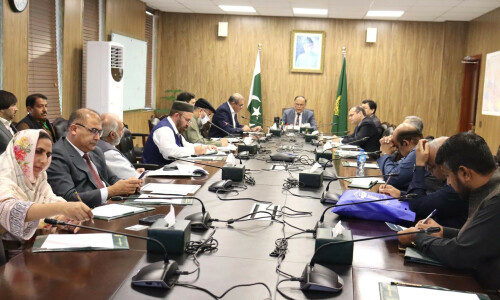NEW DELHI, Jan 1: In a government morgue in Mumbai lie the bodies of nine gunmen responsible for killing 170-odd people in a bloody attack on India’s financial hub.
The deadly rampage happened in November, but India’s Muslims have refused to bury the gunmen, distancing themselves from the killings in a country where Hindu nationalists often whip up anti-Muslim sentiment after such attacks.
“We strongly believe terrorists have no religion and they do not deserve a burial,” said Maulana Zaheer Abbas Rizvi of the All India Shia Personal Law Board, a body for framing Muslim laws.
Leaders of the 140-million-strong Muslim community have denounced the Nov 26-29 Mumbai attacks and thousands of Muslims have marched in protest against the bloodshed. It has been the strongest rejection yet of extremist violence by Indian Muslims.
“We have lost our children in the Mumbai attacks too. And we, as Indians, share a common grief and demand justice,” said Maulana Mehmood Daryabadi, general-secretary of the All-India Ulema Council, one of the biggest groupings of Muslim sects.
In Muslim neighbourhoods in the capital, residents observed low-key celebrations during Eidul Azha holidays in December.
Imran Ahmed, a bookseller, did not buy any new clothes for his children for the festival and did not distribute food to neighbours as he does each year.
“So many people were killed by the terrorists. How could I celebrate?” asked the bearded bookseller, sitting outside his shop in the narrow, congested streets of Old Delhi.
For now, the issue of burial of the militants has been averted as Indian officials say the corpses are still needed for their investigation. At the same time, contacts are under way to convince Pakistan to take the bodies, so far to no avail.
Indian Muslims lag in health care, literacy and income. Official figures show Muslims are underrepresented in government jobs and the judiciary.
Yet they are overrepresented in the prison populations in many Indian states. —Reuters













































Dear visitor, the comments section is undergoing an overhaul and will return soon.